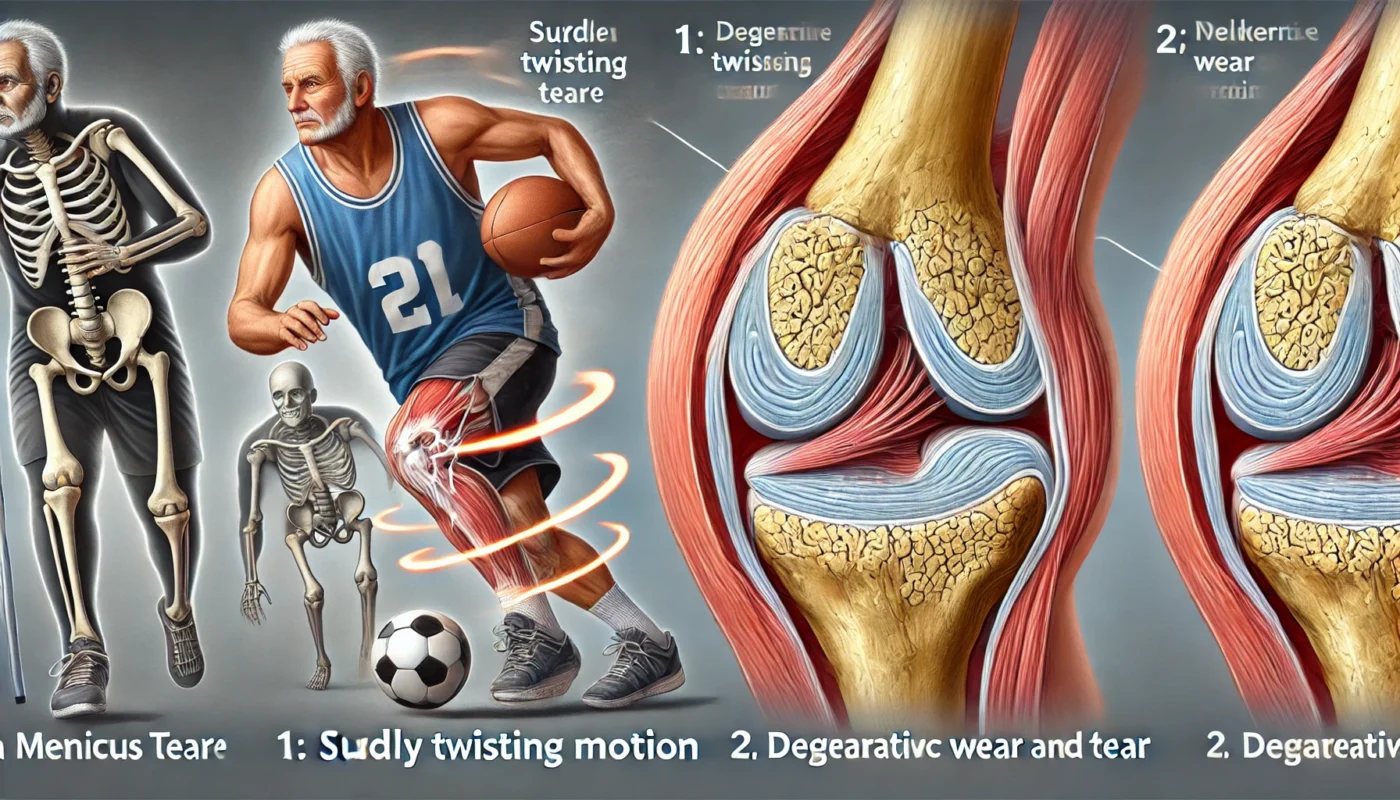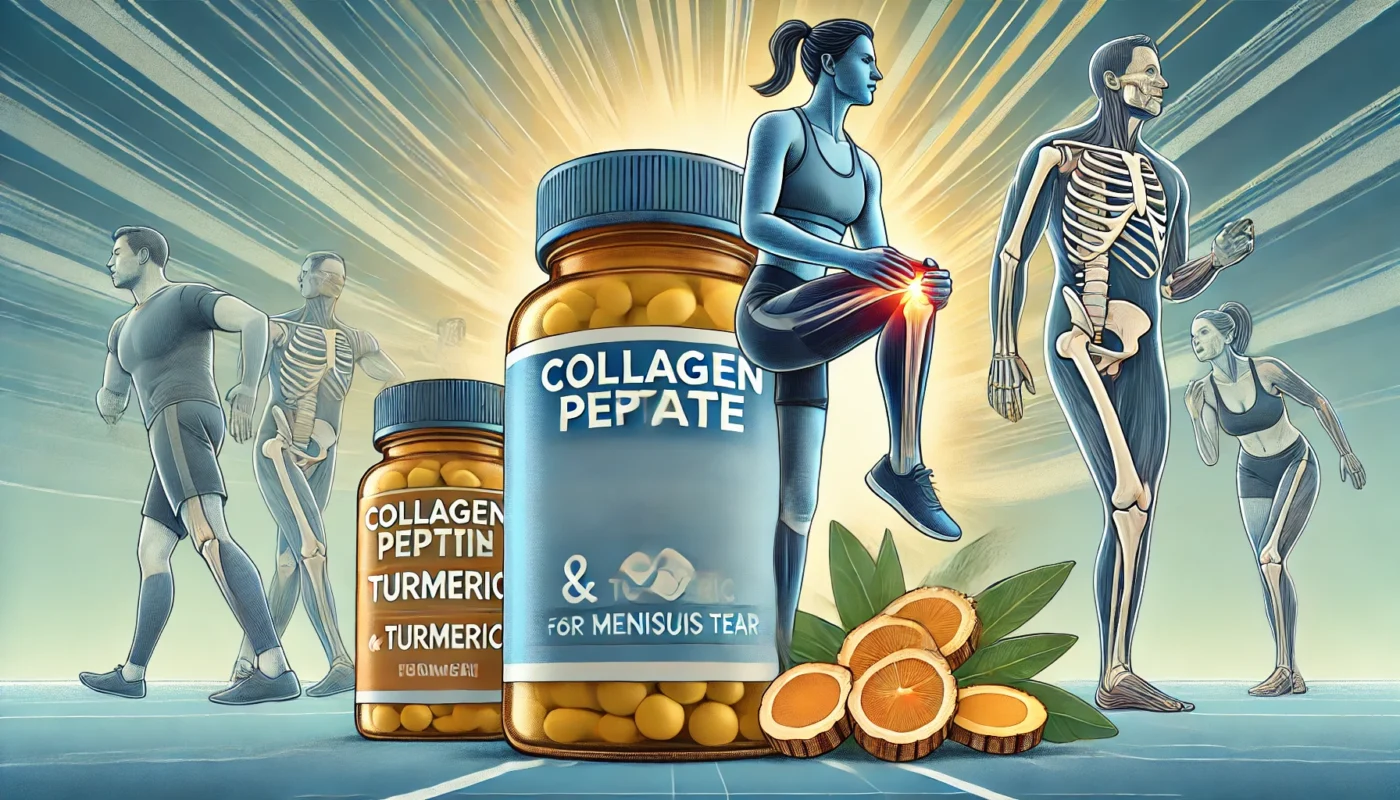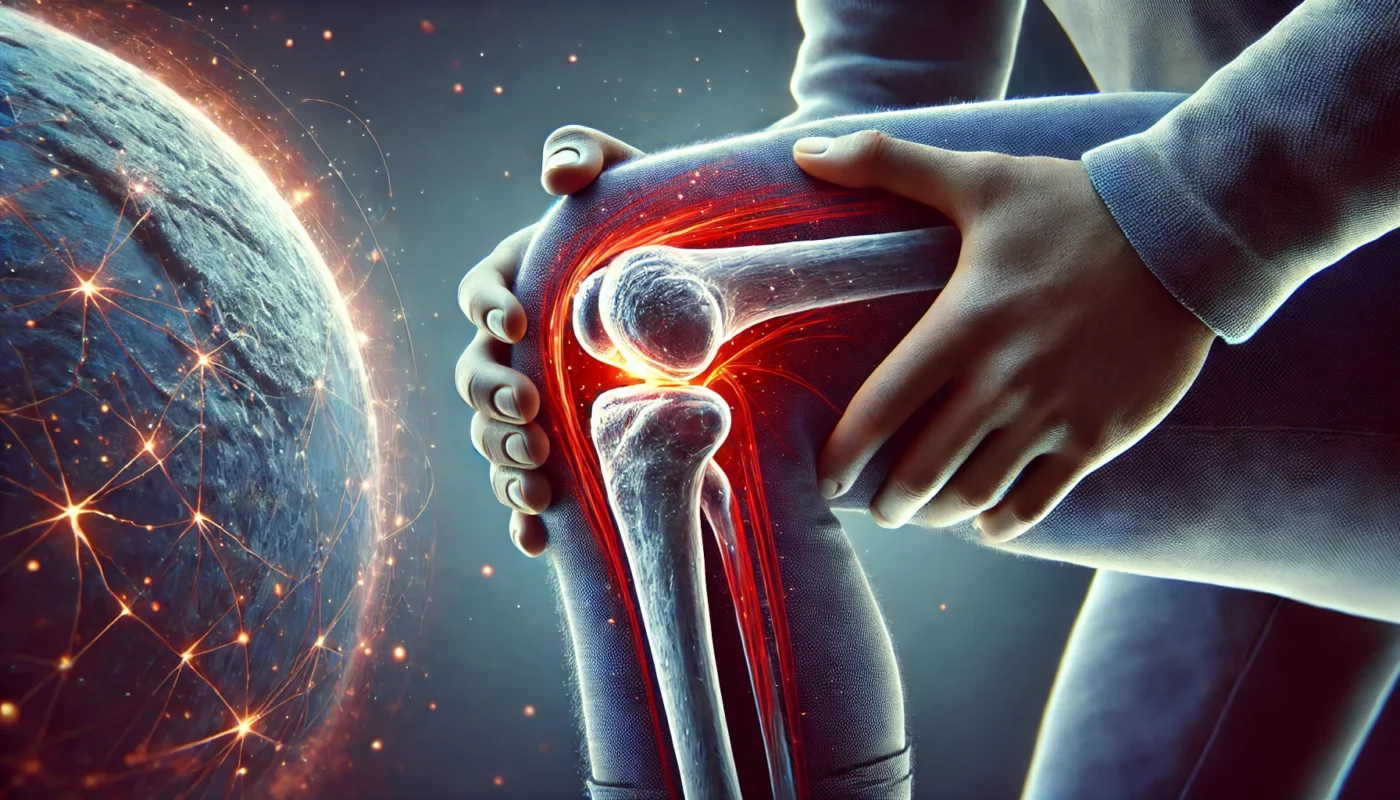A meniscus tear is a common knee injury affecting athletes and non-athletes alike. This condition can significantly impair mobility, causing discomfort and affecting daily activities. In this article, we explore the anatomy of the meniscus, the symptoms and causes of meniscal injuries, treatment options for recovery, preventative strategies, and the role of nutritional supplements in supporting healing and overall joint health.
You May Also Like:
What is a Meniscus Tear?
The meniscus is a C-shaped cartilage in the knee that cushions and stabilizes the joint. Each knee has two menisci: the medial (inside) meniscus and the lateral (outside) meniscus. These structures distribute weight across the knee joint, preventing wear and tear on the cartilage and bones.
A meniscus tear occurs when this cartilage is damaged, often due to twisting or impact injuries. Meniscal tears are one of the most frequently reported knee injuries, with an incidence rate of 60 per 100,000 people annually, as reported in a study published in the British Journal of Sports Medicine (2020). They are especially common in sports involving sudden stops, pivots, or direct contact, such as football, basketball, and skiing.

Symptoms of a Meniscus Tear
Symptoms can vary depending on the severity and location of the tear but often include:
- Pain: A sharp or persistent ache in the knee, especially during movement or weight-bearing activities.
- Swelling: Inflammation that develops within hours or days of the injury.
- Locking or Catching Sensation: A feeling of the knee “locking” or “catching” during motion.
- Reduced Range of Motion: Difficulty fully bending or straightening the knee.
- Instability: A sensation of the knee giving out during activity.
In some cases, a torn meniscus may heal on its own, but more severe tears can lead to long-term joint problems if left untreated.
Causes of a Meniscus Tear
Meniscus tears can occur from trauma, degeneration, or a combination of factors. The most common causes include:
- Sudden Twisting or Rotational Forces: This is a leading cause of acute meniscus tears, especially during sports. A clinical review published in Sports Medicine (2018) emphasized that high-impact sports significantly increase the risk of meniscal injuries.
- Aging: Over time, the meniscus becomes less elastic and more prone to tearing, making degenerative tears common in individuals over 40.
- Repetitive Stress: Occupations or activities that involve kneeling, squatting, or repetitive pivoting can lead to cumulative damage.
- Direct Impact Injuries: Falls, collisions, or blows to the knee can result in meniscal tears.
- Weak Muscles and Poor Biomechanics: Insufficient strength in the quadriceps or hamstrings and improper alignment of the lower body can place additional stress on the meniscus.

Treatment Options for Meniscus Tear Recovery
Treatment depends on the size, location, and severity of the tear, as well as the patient’s age and activity level. Options include conservative management, surgical intervention, and supportive therapies.
1. Conservative Management
Mild tears may heal with rest, ice, compression, and elevation (RICE). Nonsteroidal anti-inflammatory drugs (NSAIDs) can help reduce pain and swelling.
Targeted exercises improve knee stability and restore function. A randomized controlled trial published in the Journal of Orthopaedic & Sports Physical Therapy (2019) found that physical therapy was as effective as surgery for managing degenerative meniscal tears in some cases.
3. Surgical Interventions
For more severe tears, surgical options include:
- Arthroscopic Meniscectomy: Removal of the damaged portion of the meniscus.
- Meniscus Repair: Suturing the torn edges, allowing natural healing.
- Meniscus Transplantation: Reserved for cases where the entire meniscus is removed.
4. Cryotherapy
The application of cold packs reduces inflammation and promotes healing. Cryotherapy is especially beneficial during the acute phase of injury.
5. Nutritional Support
Certain supplements can enhance tissue repair, reduce inflammation, and improve joint health. Examples include:
- Turmeric: Curcumin, the active compound in turmeric, has potent anti-inflammatory properties. A study published in the Journal of Alternative and Complementary Medicine (2016) showed significant pain reduction in individuals using turmeric for joint injuries.
- Glucosamine and Chondroitin: These compounds support cartilage repair. A 2018 study in The American Journal of Sports Medicine found improved joint function in patients taking glucosamine and chondroitin after knee injuries.
- Bromelain: Derived from pineapples, bromelain is effective in reducing swelling and improving mobility. A study in Clinical Rheumatology (2017) highlighted its benefits for soft tissue recovery.
- Vitamin C: Essential for collagen synthesis, vitamin C plays a critical role in cartilage repair. Research published in Nutrients (2020) showed accelerated recovery in patients with connective tissue injuries.
- Omega-3 Fatty Acids: Known for their anti-inflammatory effects, omega-3s support joint health and may reduce stiffness and swelling. A 2020 study in Frontiers in Nutrition demonstrated their efficacy in musculoskeletal recovery.
- Collagen Peptides: Collagen improves cartilage integrity and promotes healing. A 2022 study in Journal of Orthopaedic Research found that collagen supplementation reduced recovery times for knee injuries.

Steps for Possible Prevention of Meniscus Tears
Preventing meniscus tears requires maintaining knee health through proper conditioning, biomechanics, and protective measures. Here are effective prevention strategies:
- Strengthen Knee Muscles Strong quadriceps, hamstrings, and calf muscles stabilize the knee and reduce strain on the meniscus. Regular resistance training and balance exercises can help.
- Warm-Up and Stretch Dynamic stretches and light activity before exercise improve flexibility and prepare the knee for movement.
- Avoid Overloading the Knee Gradually increase the intensity of physical activities to allow the knee to adapt. Avoid sudden changes in direction or high-impact movements without proper training.
- Wear Supportive Footwear Shoes with proper cushioning and arch support reduce stress on the knee. For high-impact sports, consider using knee braces or sleeves for added stability.
- Focus on Proper Technique Ensure proper form during sports, exercise, and daily activities to minimize abnormal stress on the knee joint.
- Maintain a Healthy Weight Excess weight places additional pressure on the knee, increasing the risk of meniscal tears. A study published in Obesity Reviews (2021) confirmed that weight loss significantly reduced knee joint stress in overweight individuals.
Conclusion
A meniscus tear is a common yet potentially debilitating knee injury that requires careful management and rehabilitation. Recovery options range from conservative care to advanced surgical interventions, with the choice depending on the severity of the injury and the patient’s lifestyle. Nutritional supplements like turmeric, bromelain, glucosamine, vitamin C, omega-3 fatty acids, and collagen peptides offer additional support for reducing inflammation and promoting tissue healing.
Preventative measures, including strength training, proper footwear, and attention to biomechanics, are crucial for minimizing the risk of meniscus injuries. By adopting a proactive approach to knee health and utilizing evidence-based treatments, individuals can recover effectively and maintain optimal joint function.

References
- Meniscus Tear: Pathology, Incidence, and Management. Retrieved from: https://pmc.ncbi.nlm.nih.gov/articles/PMC9205760/
- Collagen in tendon, ligament, and bone healing. A current review. Retrieved from: https://pubmed.ncbi.nlm.nih.gov/7671527/
- Effects of omega-3 supplementation on muscle damage after resistance exercise in young women: a randomized placebo-controlled trial. Retrieved from: https://pubmed.ncbi.nlm.nih.gov/34130550/
- Role of Curcumin in Common Musculoskeletal Disorders: a Review of Current Laboratory, Translational, and Clinical Data. Retrieved from: https://pmc.ncbi.nlm.nih.gov/articles/PMC6583735/
- Planta Medica. (2015). Bromelain’s role in reducing post-operative inflammation. Retrieved from https://www.plantamedica.com
Important Note: The information contained in this article is for general informational purposes only, and should not be construed as health or medical advice, nor is it intended to diagnose, prevent, treat, or cure any disease or health condition. Before embarking on any diet, fitness regimen, or program of nutritional supplementation, it is advisable to consult your healthcare professional in order to determine its safety and probable efficacy in terms of your individual state of health.
Regarding Nutritional Supplements Or Other Non-Prescription Health Products: If any nutritional supplements or other non-prescription health products are mentioned in the foregoing article, any claims or statements made about them have not been evaluated by the U.S. Food and Drug Administration, and such nutritional supplements or other health products are not intended to diagnose, treat, cure, or prevent any disease.

